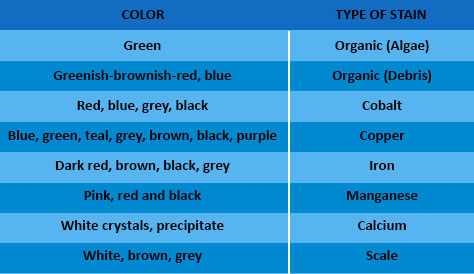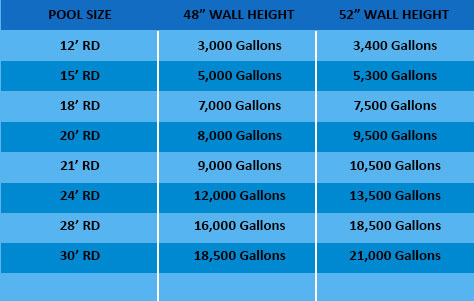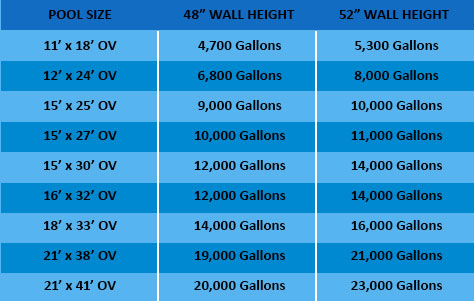How can I get rid of a stain?
Start by testing your water and checking your balance, regardless of the type of stain you have. For Organic Stains: Once your pool is balanced, super shock...
Start by
testing your water and checking your balance, regardless of the type of stain you have.
For Organic Stains: Once your pool is balanced, super shock your pool with calcium hypochlorite (we recommend
Rx Clear® Super Shock Swimming Pool Shock). Once the shock has circulated for a few hours, apply
granular chlorine to the stain and begin to scrub.
For Metal/Mineral Stains: Once your pool is balanced, you’ll want to carefully follow the instructions of a stain remover designed to remove stains caused by that specific metal or mineral. This often requires you to pour a specific amount in based on how many gallons of water are in your pool. The amount varies by the cleaner, so always check as you’re purchasing a stain remover so you get the proper amount.
For Scale Stains: There are a few ways to remove scale. The easiest method is to purchase a calcium stain remover, which you’ll just add to the water or apply to the area — depending on the instructions. For scale on tile, you can use a stain eraser that works on calcium or a
pumice stone. You’ll use this to scrub the area and leave your tile looking polished.
[Shop All Stain Removers & Cleaners]






 Pools
Pools Spas
Spas Liners
Liners Equipment
Equipment Covers
Covers Accessories
Accessories Cleaning
Cleaning  Pool Fun
Pool Fun  Clearance
Clearance









